Wisbech incinerator: What happens next with £300m waste plan?
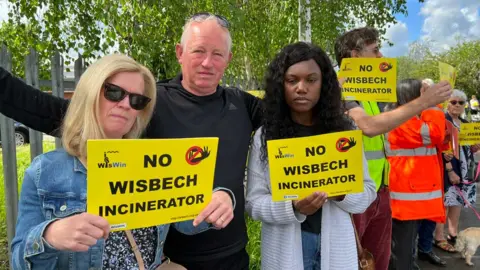 Emma Baugh/BBC
Emma Baugh/BBCWaste from across the East of England could be burned in a £300m incinerator on the Cambridgeshire-Norfolk border after the government granted development consent for a controversial incinerator. However, the plans have triggered a row in Westminster over perceived conflict of interest. What has happened so far, and what happens next?
What is proposed?
MVV Environment wants to build one of Europe's biggest waste-to-energy incinerators on Algores Way Industrial Estate in Wisbech, Cambridgeshire, near the A47.
It says burning waste, rather than sending it to landfill, will generate energy for local industrial use.
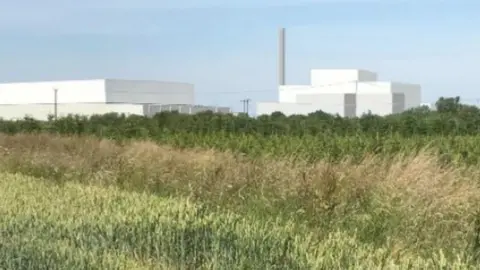 MVV UK
MVV UKEach year up to 625,600 tonnes of non-recyclable household, commercial and industrial waste could be burned, the firm says, enough to generate more than 50 million watts of electricity and up to 30 million watts of steam heat.
This energy could then be used by nearby industrial companies at a "competitive" price - or the National Grid.
It says some waste from the East of England is currently being exported to Europe where it is being used as fuel.
An application for the Medworth Energy from Waste Combined Heat and Power Facility (named after the council ward in which it could be built) was submitted by Medworth CHP Limited to the Planning Inspectorate for consideration.
Its parent company, MVV Environment, says more than £300m will be spent, creating 700 jobs initially during the three-year build and then 40 full-time skilled jobs once it is up and running.
The company, which runs smaller waste incineration plants in Kent, Dundee and Plymouth, is owned by German-based MVV Energie.
Waste plans approved
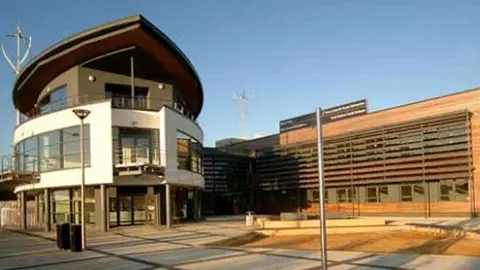 Fenland District Council
Fenland District CouncilDue to the project's large scale, the Planning Inspectorate, rather than the local authority, examined it.
In light of its recommendation, Energy Security Secretary Claire Coutinho approved the incinerator plans on 20 February, meaning they can now go ahead.
Paul Carey, managing director of MVV Environment Limited, said he was "clearly very pleased" and that construction would probably begin "sometime in 2025".
He said the company would now be recruiting a community liaison manager and wanted to demonstrate it would be "a good neighbour".
The Environment Agency and the permit
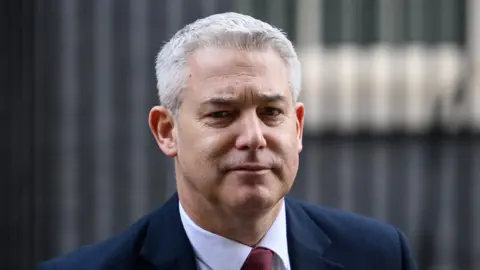 Getty Images
Getty ImagesWhile the project has planning permission, the facility does not yet have a permit to operate.
The Environment Agency said it would only issue one if it believed harm to the environment, people and wildlife would be minimised and that the operator had the ability to meet its conditions.
The decision would usually be made by the environment secretary, currently Steve Barclay.
However, the planned incinerator is in Mr Barclay's North East Cambridgeshire constituency and he has strongly opposed it from the start.
After the energy security department gave its approval, Mr Barclay told a local newspaper the decision was "terrible news for our area", vowing to "continue to do everything possible to fight" against the incinerator.
Labour has written to Mr Barclay, saying the story "raises serious issues, potentially involving a breach of the ministerial code".
In the letter, shadow environment secretary Steve Reed asked Mr Barclay to publish any correspondence he had had with the Environment Agency about the incinerator.
A government spokesman said: "The secretary of state is recused from the decision.
"No decision has been taken. Mark Spencer is the minister responsible and would take any decision on this issue."

Analysis
Emma Howgego, BBC Politics Reporter for Cambridgeshire
Steve Barclay, along with neighbouring South West Norfolk MP Liz Truss, has been opposed to the incinerator since the beginning. In fact, his petition against it is still visible on his website. He became environment secretary in November and was always going to be in a difficult position if he had to make the decision on whether to grant a licence.
Had he approved it, he could have faced the wrath of his constituents at the upcoming general election. Now he can quite legitimately tell the people of Wisbech he tried his best and that it was right and proper he was not the one to make the decision.

Five authorities - Wisbech Town Council, Fenland District Council, King's Lynn and West Norfolk Council, and Norfolk and Cambridgeshire county councils - have opposed the incinerator scheme.
In a statement, the authorities described the government's approval as "a huge disappointment to all of us who opposed this development."
Fenland District Council has instructed barristers to review the planning decision and to research the legal grounds on which a judicial review might be launched.
Concerns have also expressed about increases in lorry traffic, air pollution, bad smells and its visible impact, along with its proximity to a large secondary school, Thomas Clarkson Academy.
Campaigners had also voiced fears about the 311ft (95m) height of the plant's two chimneys which, they point out, would be taller than the 216ft-high (66m) Ely Cathedral.
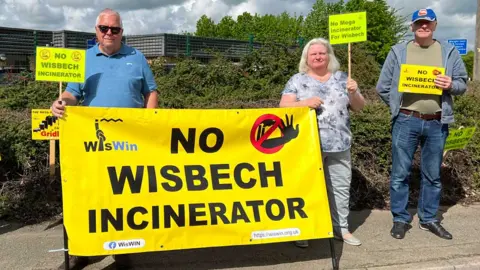 Emma Baugh/BBC
Emma Baugh/BBCIn February 2023, campaigners held a silent protest when the Planning Inspectorate visited Wisbech after the examination process opened for a series of hearings.
The WisWIN (Wisbech Without Incineration) group was set up to try to halt the plans.
Campaign co-ordinator Ginny Buckner said the group was "devastated" by the government's decision.
"I think many of us feel as though we are mourning, we're so upset," she said.
She described being "inundated" with businesses and residents who contacted her to express their concerns about the decision.
Ms Buckner said: "It makes no business sense, no ecological senses, no environmental sense."
'A giant blot'
Steve Tierney, who serves on Wisbech Town Council and is Conservative ward councillor for Medworth, has also opposed the incinerator being built.
"It's going to be the largest incinerator in the country - it will be a giant blot over the town," he said last year.
"It will be taller than Ely Cathedral, so it will feel like a backward step when we're trying to attract visitors and tourists here."
He added the development could result in an extra 300 lorries a day in the area, while its location near the old railway line could hamper plans to get it up and running again.
Mr Tierney said he was also worried about residents' welfare, with rubbish being transported from other areas such as parts of Norfolk, Milton Keynes and Essex.
"There are health concerns - they say they can filter out the particles, but micro-particles cannot be captured so there could be long-term effects on people's health," he said.
"The people of Wisbech just don't want it. We've got no problem dealing with our rubbish - we've already got an incinerator in Peterborough.
"None of the people who want to reduce waste want to burn it - they want to find ways to recycle and re-use it."

Find BBC News: East of England on Facebook, Instagram and Twitter. If you have a story suggestion email [email protected].
